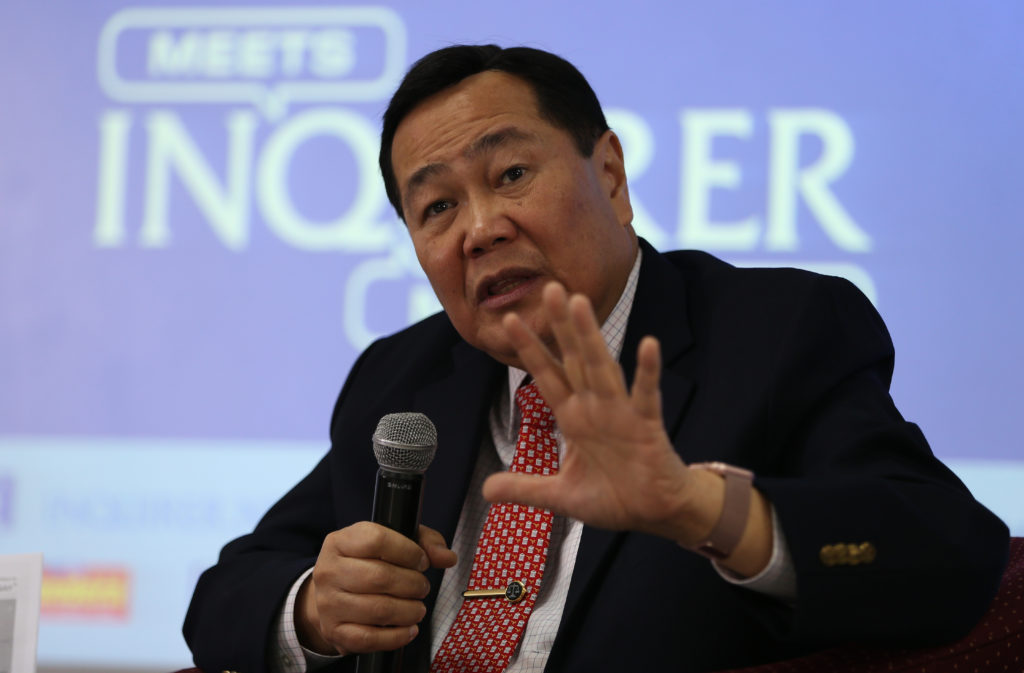
Supreme Court Senior Associate Justice Antonio Carpio
TOKYO—Supreme Court Senior Associate Justice Antonio Carpio was right to say that China should be denied access to the Philippine Rise if it continues to disrespect Manila’s sovereign rights in the West Philippine Sea (WPS).
This was the view of international security expert, Professor Ken Jimbo of Japan’s Keio University, who said Beijing should respect the Permanent Court of Arbitration’s (PCA) decision in July 2016.
“The Philippines has a clear legal judgment on what could be allowed and what could not be allowed,” Jimbo said on Thursday.
“That is not based purely on the Philippine interpretation of where is the red line. There’s an internationally recognized legal red line. That’s the strength of the PCA,” he said.
Based on ruling
“Every decision the Philippines makes should be based on the PCA ruling. I wish to see the Philippines maintain the status of the PCA,” Jimbo added.
He made the remarks after Carpio criticized Malacañang for allowing China to conduct scientific research in Philippine waters while refusing to recognize the PCA ruling.
But presidential spokesperson Harry Roque said the Chinese scientific expedition was irrelevant to the country’s claims in the West Philippine Sea.
Beijing’s intrusions
Interestingly, Roque had previously been very vocal against Beijing’s intrusions into Philippine waters until he was designated presidential spokesperson.
Jimbo noted that Japan had also been supportive of a legally-binding solution to the territorial disputes in the South China Sea.
“I think [the PCA ruling] has been politicized in a way,” Jimbo said. “The international community needs to congratulate what the Philippines has done so far.”
“It is a very rare case that the PCA made a judgment on a very specific legal issue in the South China Sea,” Kimbo said, urging the Duterte administration to rethink its policy of pivoting from the United States to China.
“If you look at the wider perspective of the security architecture, the US engagement is still the platform in creating the basic kind of deterrence and response,” he reiterated.
Engagement fluctuations
“Obviously, US has lot of fluctuation in engagement, but we cannot really replace the role of the US. We can engage in Philippine maritime security, but not in replacing the US,” he said.
“It’s not about what the US thinks, but about the multinational platform [that must] co-exist with China,” he said.